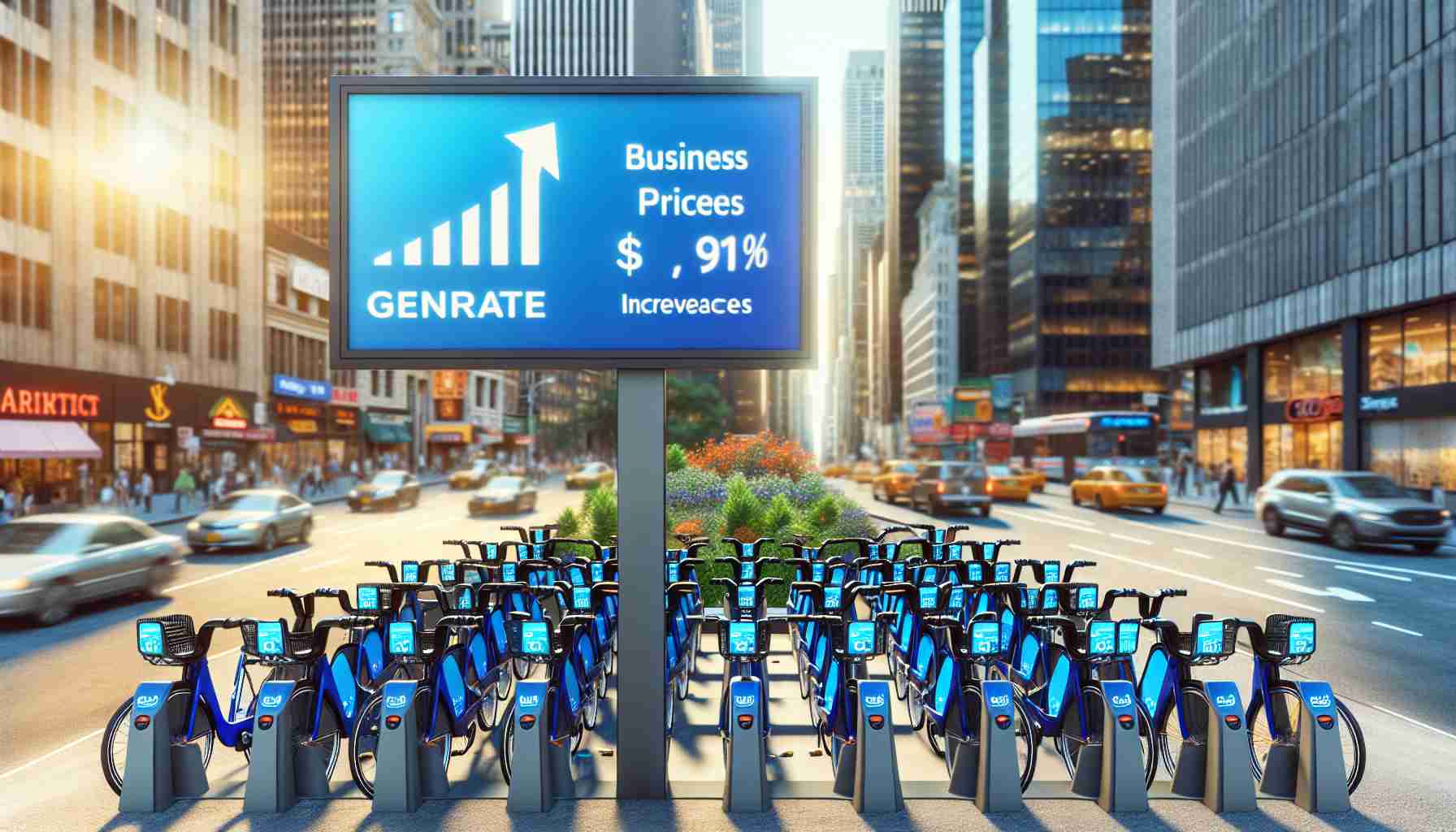Lyft, the operator of the popular electric bike-sharing program in New York City, announced that it will be raising prices for its electric Citi Bike rides. The decision comes as the company faces higher costs than expected due to factors such as battery swapping, insurance expenses, and vehicle maintenance.
In an effort to address these increased costs, Lyft is partnering with the city’s Department of Transportation and Con Edison to introduce charging stations. These stations will help reduce operational overhead and ensure that riders can easily find e-bikes that are fully charged and available for use.
Despite the price hike, Lyft assures customers that the new fares will still remain below the cap set by the Department of Transportation. The changes, set to be implemented on July 10, will only affect riders in New York City and not those in New Jersey. It’s important to note that there will be no change in annual membership prices, and the price increase will only apply to per-minute rates for electric Citi Bike rides.
While this price increase may inconvenience some riders, it reflects Lyft’s commitment to providing a reliable and efficient service. The growing demand for e-bikes in particular has contributed to the need for improved infrastructure and battery management. By investing in charging stations and manual battery swapping, Lyft aims to ensure a seamless experience for riders seeking electric Citi Bikes.
As the city’s bikeshare program evolves, Lyft and the Department of Transportation continue to work together to meet the changing needs of riders. By addressing the challenges posed by battery swapping and high operating costs, they are taking steps to enhance the overall electric Citi Bike experience and offer commuters a sustainable and convenient transportation option.
In conclusion, while the forthcoming price increase for electric Citi Bike rides may disappoint some users, it reflects ongoing efforts by Lyft and its partners to improve the service. The introduction of charging stations and increased investment in manual battery swapping will help ensure that riders can easily find fully charged e-bikes, contributing to a seamless and reliable experience.
The electric bike-sharing industry has been experiencing significant growth in recent years, with companies like Lyft leading the way. The market for electric bikes has been driven by factors such as the increasing popularity of eco-friendly transportation options and the need for efficient and convenient last-mile solutions in urban areas.
According to market forecasts, the global electric bike market is projected to reach a value of $38.6 billion by 2025, with a compound annual growth rate of 7.9% during the forecast period. This growth is expected to be driven by factors such as government initiatives to promote electric mobility, rising fuel costs, and the increasing awareness of environmental issues.
However, the industry also faces challenges and issues that need to be addressed. One of the main issues is the high operating costs associated with electric bike-sharing programs. Companies like Lyft have to bear costs such as battery swapping, insurance expenses, and vehicle maintenance, which can significantly impact their profitability.
To overcome these challenges, Lyft has partnered with the city’s Department of Transportation and Con Edison to introduce charging stations. These charging stations will help reduce operational overhead and ensure that riders can easily find e-bikes that are fully charged and available for use. This investment in infrastructure is crucial to meet the growing demand for electric Citi Bikes and provide a seamless experience for riders.
Another challenge that the industry faces is the need for effective battery management. The increasing popularity of electric bikes has put pressure on companies to find efficient ways to manage and maintain their bike batteries. Lyft’s investment in manual battery swapping is a step towards addressing this challenge and ensuring that riders have access to fully charged e-bikes at all times.
In conclusion, while the forthcoming price increase for electric Citi Bike rides may disappoint some users, it reflects ongoing efforts by Lyft and its partners to improve the service. The introduction of charging stations and increased investment in manual battery swapping will help ensure that riders can easily find fully charged e-bikes, contributing to a seamless and reliable experience. As the industry continues to grow, addressing these challenges will be crucial to the success and sustainability of electric bike-sharing programs.
Related links:
Citi Bike official website
E-Bike Market Growth Forecast
Lyft’s Cost Challenges with Citi Bike Expansion







